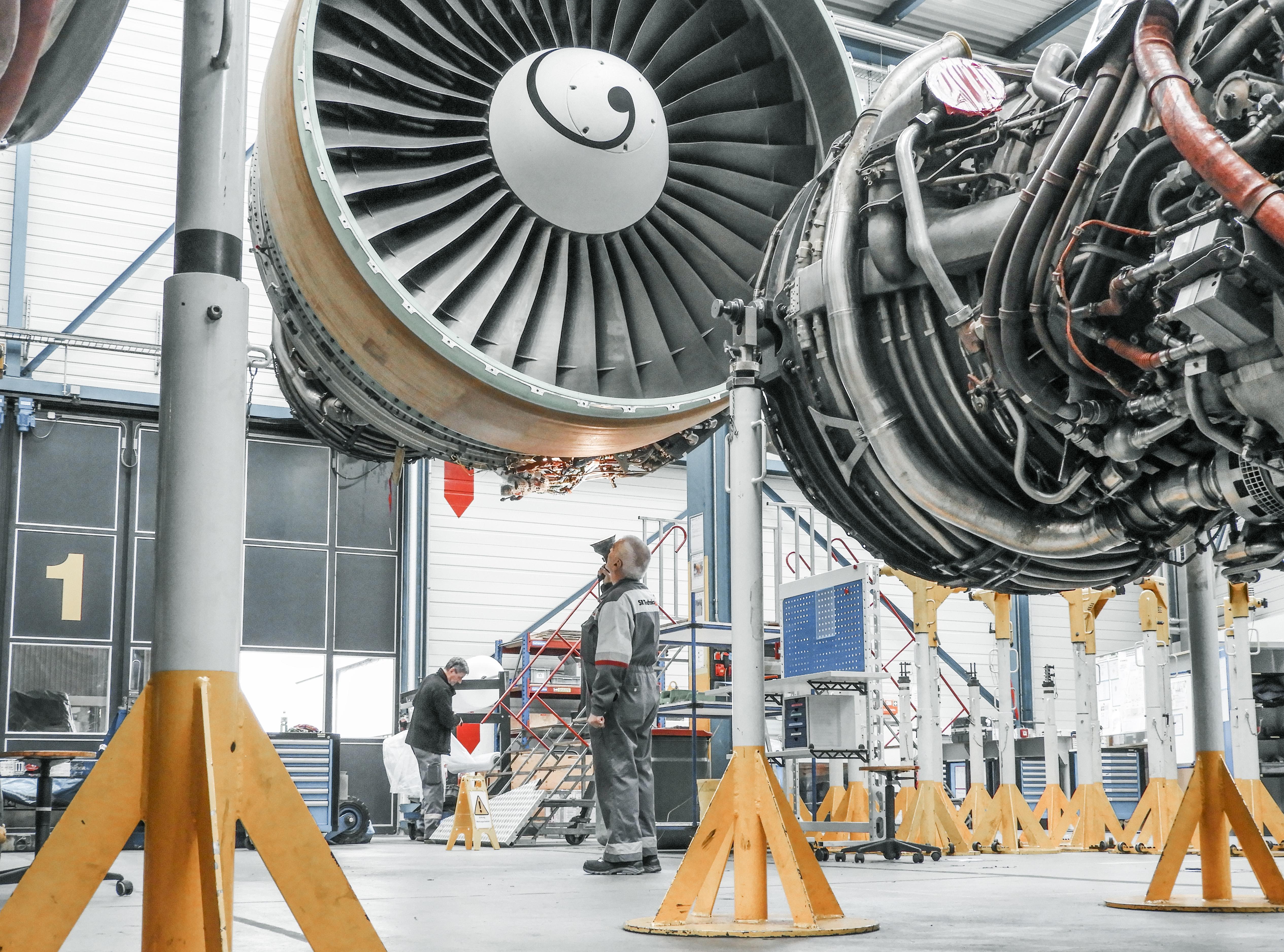
The COVID-19 pandemic is wreaking havoc on the airline industry, which could result in the commercial aviation MRO market dollar demand declining 25-30% this year, compared to what Aviation Week Network forecasted before the outbreak. This means the market demand will decrease from $91.2 billion to $64-73 billion in 2020, when looking at potential scenarios, with engine maintenance comprising 42% of it, a newly revised Aviation Week forecast projects.
Even though the novel coronavirus pandemic will likely be far more devastating to the airline and aftermarket industries than the aftermaths of the Sept. 11, 2001, terrorist attacks in the U.S., the 2008 global financial crisis and H1N1 swine flu pandemic, collective wisdom pegs airline traffic to pick up before the aftermarket recovers, similar to previous economic disruptors.
Right now about 8,000 aircraft are parked—about one-third of the pre-pandemic active fleet. Engine OEMs are feeling the pain, on the production and aftermarket sides.
“About one-third of the global CFM fleet is serviced by GE and Safran Aircraft Engines. Both companies have taken action in light of the anticipated reduction in MRO demand over the next several months,” says CFM International, the GE Aviation/Safran joint venture.
GE Aviation is temporarily laying off half of its U.S. MRO workforce for 90 days because of service demand reductions, and similar moves are expected in its non-U.S. shops.
Rolls-Royce closed its civil aerospace facilities except for “essential activity” from one week, from March 27.
Bernstein analysts on April 2 predicted the widebody engine market to be hit worse than narrowbodies because aircraft such as the Boeing 747, 757 and older Airbus A330s that are parked simply won’t return to service. This means engines such as the Pratt & Whitney 4000, GE CF6-80C2, Rolls-Royce RB211 and Trent 700 could face risks, although that could somewhat be “mitigated by exposure to non-passenger aircraft (ie freighters and military transport), which could be more resilient,” cites Bernstein.
Lufthansa Technik agrees that engines powering passenger aircraft will be affected more than freighters. “Lufthansa Technik never operated our [engine shop] production with backlogs,” instead focusing on “efficient wing-to-wing turnaround times to reduce asset cost. Therefore this part of the business was hit first even though we started preparations for the crisis early,” says Dietmar Focke, head of engine services.
However, Lufthansa Technik’s mobile engine services repair stations in Frankfurt, Germany; Montreal, Canada; Tulsa, Oklahoma; and Shenzhen, China are each fully operational, and “seeing requests for events that were originally planned as major interventions,” says Focke.
Even after travel bans are lifted and airlines resume flying unencumbered domestic and international networks, he predicts demand for these mobile engine services to continue. “Our small surgical procedures enable operation on lower cost basis and are significantly cheaper than full-performance restoration visits,” he says. While these targeted maintenance procedures keep engines on-wing longer, they cannot fully substitute for full shop visits.
SR Technics also is getting requests for different work scopes as customers’ aircraft are grounded.
“Our field teams are high in demand to do smaller engine maintenance checks of the parked aircraft to keep them airworthy. This could be oil changes, filter replacements, smaller repairs and engine test-runs,” says a company spokeswoman. Over the last couple of weeks, the MRO’s 12 line stations in Switzerland, Spain and the UK are also receiving tasks to maintain airworthiness.
Bigger picture, operators are contacting SR Technics about “short-term aircraft storage maintenance, out-of-storage checks and return-to-service maintenance” as they weigh whether to park aircraft short- or longer-term, says the spokeswoman. “Leasing companies are asking for repossession services, aircraft parking and the previous introduced virtual table inspection where customers can inspect their parts remotely is high in demand,” she adds.


